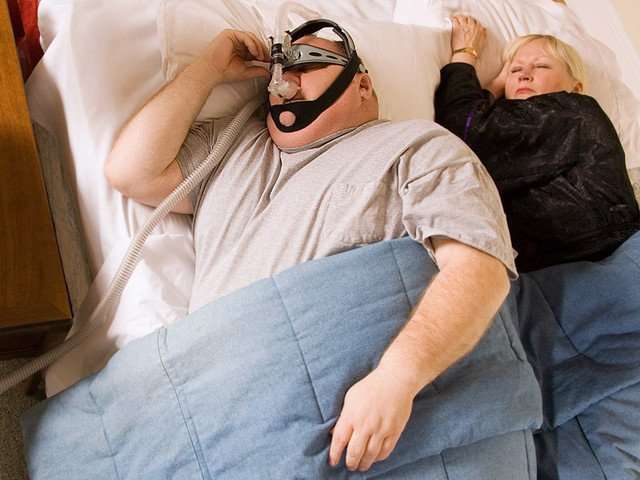How mouth tape can prevent CPAP leaks:
Sleep apnea is a common sleep disorder that affects millions of people worldwide. It can lead to various health issues, from daytime fatigue to more severe conditions like heart disease and hypertension. Continuous Positive Airway Pressure (CPAP) therapy is often the go-to treatment for moderate to severe sleep apnea. However, CPAP therapy has its challenges, one of the most common being air leaks. These leaks reduce the effectiveness of therapy and can disrupt your sleep. This article explores how the simple solution of mouth tape can help prevent CPAP leaks, leading to more effective treatment and a better night’s rest.
Understanding Sleep Apnea and CPAP Therapy:
Sleep apnea is a sleep disorder characterized by repeated interruptions in breathing during sleep. These interruptions, known as apneas, can last from a few seconds to over a minute and occur many times per hour. The most common type of sleep apnea is obstructive (OSA), caused by a temporary airway blockage due to relaxed throat muscles.
CPAP therapy is the gold standard for treating OSA. It involves using a CPAP machine, which delivers a continuous air stream through a mask to keep the airway open. The positive pressure created by the CPAP machine prevents the airway from collapsing during sleep, effectively treating sleep apnea.
However, the effectiveness of CPAP therapy can be compromised by air leaks, which occur when air escapes from the mask or the mouth. These leaks make the therapy less effective and can lead to discomfort and noise, both for the person using the CPAP machine and their sleep partner.
The Role of Mouth Leaks in CPAP Therapy:
Air leaks in CPAP therapy can be categorized into mask leaks and mouth leaks. Mask leaks occur when air escapes from the seal between the mask and your face. These leaks are more prominent and typically addressed by adjusting the mask fit or using a different style.
Mouth leaks, on the other hand, are often less noticeable but equally problematic. They occur when the person’s mouth falls open during sleep, allowing the pressurized air from the CPAP machine to escape. These leaks can lead to dry mouth, disrupted sleep, and, more importantly, decreased therapeutic effectiveness of CPAP treatment.
While mask leaks are more straightforward to address, mouth leaks can be trickier to manage. It is where mouth tape comes into play as a simple yet effective solution.
The Science Behind Mouth Taping:
Mouth taping is based on keeping the mouth closed during sleep, which can help prevent mouth leaks during CPAP therapy. The method involves applying small tape over the lips to ensure they remain sealed throughout the night.
The concept may sound unusual, but there’s a scientific basis for it. Breathing through the mouth can lead to reduced airway pressure as the pressurized air from the CPAP machine is allowed to escape. It can be detrimental to the effectiveness of the therapy, as it fails to maintain the necessary positive pressure to keep the airway open.
By using mouth tape to encourage nasal breathing, you can ensure that the positive pressure from the CPAP machine is retained, preventing leaks and improving the overall efficacy of the treatment.
Benefits of Mouth Taping in CPAP Therapy:
Using mouth tape in CPAP therapy can offer several benefits, both for the individual undergoing treatment and their sleep partner:
1. Improved Therapy Effectiveness: Mouth taping helps maintain consistent airway pressure, ensuring that the CPAP machine can effectively treat sleep apnea.
2. Reduced Discomfort: Mouth leaks can lead to dry mouth and discomfort during therapy. Mouth taping minimizes these issues, allowing for a more comfortable night’s sleep.
3. Quieter Sleep: Mouth leaks often result in noisy air escaping from the mouth, disturbing both the person using the CPAP machine and their sleep partner. Mouth taping reduces noise levels.
4. Enhanced Sleep Quality: By preventing leaks and disruptions, mouth taping can lead to a better quality of sleep, which is essential for overall health and well-being.
How to Use Mouth Tape with CPAP Therapy:
Using mouth tape with CPAP therapy is a straightforward process:
1. Choose the Right Tape: Select a type of tape that is safe for use on the skin and easy to remove. There are specialized mouth tapes available that are designed for this purpose.
2. Prepare the Skin: Ensure your lips and the surrounding skin are clean and dry before applying the tape. It will help the tape adhere properly.
3. Apply the Tape: Cut a small piece of tape, approximately 1-2 inches long, and gently apply it across your lips, ensuring your mouth is closed. The tape should be secure but not overly tight to allow for comfortable breathing through your nose.
4. Practice Nasal Breathing: Practice breathing through your nose daily to get used to the sensation. It will make it easier to adjust to nighttime nasal breathing.
5. Monitor Your Progress: Pay attention to the quality of your sleep, any discomfort, or changes in your CPAP therapy. Adjust the tape application as needed to ensure the best results.
Safety Considerations:
Mouth taping is generally safe for most people, but there are a few considerations to keep in mind:
1. Allergies: Some individuals may be sensitive to the adhesive on the tape. If you experience skin irritation or allergies, discontinue use.
2. Nasal Congestion: If you have significant nasal congestion, mouth taping may not be suitable. It’s essential to have unobstructed nasal breathing to ensure a continuous supply of air.
3. Consult a Healthcare Professional: If you have concerns about using mouth tape with your CPAP therapy, consult a healthcare professional or a sleep specialist for guidance and recommendations.
Conclusion
CPAP therapy is a highly effective treatment for sleep apnea, but air leaks, particularly mouth leaks, can hinder its success. Mouth taping offers a simple and practical solution to this problem. By keeping the mouth closed during sleep, you can maintain consistent airway pressure and enjoy a more restful night’s sleep.
If you’re considering mouth taping as part of your CPAP therapy, consult your healthcare provider for guidance. With proper use, mouth tape can be a valuable tool in your journey to better sleep and improved health, ensuring you get the most out of your CPAP treatment. Say goodbye to disruptive leaks, and hello to a peaceful night’s rest.




